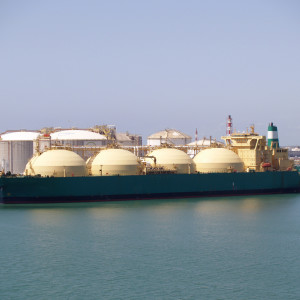The shale revolution has lowered utility bills and the price of heat for American families and reinvigorated manufacturing in parts of what had been the Rust Belt. It also has the potential to shape U.S. foreign policy, both in the Caribbean and in Central America. This week, Sens. Bill Cassidy, R-La., and Marco Rubio, R-Fla., proposed legislation to boost small-scale natural gas exports by simplifying the approval process that many countries would have to complete in order to bring in natural gas from the U.S.
“Expedited approval of small-scale natural gas exports would strengthen an emerging sector of Florida’s economy,” said Rubio when the bill was announced. “In addition to the economic advantages for Florida, this measure would bolster our existing ties with Caribbean and Latin American nations while ensuring that bad actors in the region, including Cuba and Venezuela, do not reap its benefits.”
The bill would allow applications to export up to 51.1 billion cubic feet of natural gas per day to any country that can get Energy Department approval without “modification or delay.” This would be a significant improvement over the current law, which requires the Energy Department to certify that natural gas exports are “in the public interest” before allowing them to proceed.
The Caribbean has been eyed as a potential expansion market for U.S. natural gas for several years. While the U.S. has increasingly switched to natural gas generators for electricity, 85 percent of power generation in the Caribbean comes from fuel oil. The numbers are slightly better in Central America, but a market report released this summer by Wood Mackenzie found that with the exception of Colombia, 54 percent of Central America also relied on diesel or fuel oil for electricity generation. Many countries had been hesitant to invest heavily in new generation technology without the guarantee of a consistent supply of fuel.
More recently, as American production remains steady, the affordability and lower emission of natural gas have made it an increasing alluring prospect for many countries. The report estimated that natural gas imports into the region would grow six-fold over the next decade. This is much higher than the annual four to five percent growth estimated to occur globally.
However, so far, less than 20 percent of this projected new Caribbean demand for natural gas has been contracted. This makes the region an enticing opportunity for American producers who are looking for new markets.
In addition to having an impact on energy markets, the proposed rule change could help American foreign policy as well. At present, the Maduro regime in Venezuela supplies oil to much of the region. Increased American energy supplies in Central America and the Caribbean would reduce the revenues flowing back to that country.
Domestically, the rule change would support jobs both in the shale fields and at the ports from which the natural gas would be shipped. This summer, the DOE approved the country’s first offshore liquefaction project after approving exports of up to 1.8 billion cubic feet per day from the terminal planned by Delfin LNG. The company has planned four floating liquefied natural gas vessels with a total export capacity of 13 million metric tonnes per year that can in theory be shifted throughout the Gulf as market pressures shift. The project is set to be completed in 2020. In the meantime, construction will support hundreds of new jobs in the area.
Rule changes like the one proposed this week will hopefully make such projects more common. Rubio and Cassidy’s bill is a formal codification of a rule change proposed by the Department of Energy earlier this fall. The rule called for the DOE to authorize LNG exports to countries without a free trade agreement with the U.S. as long as the exports were less than 140 MMcf/d. In early October, Cassidy and two other Republican senators–Lisa Murkowski of Alaska and John Barasso of Wyoming–wrote to Energy Secretary Rick Perry praising the rule.
In their letter, the senators said that without the natural gas exports rule change, the U.S. would “remain sidelined” while allies in the Caribbean “will continue to pay higher energy prices for less reliable fuel sources.”

